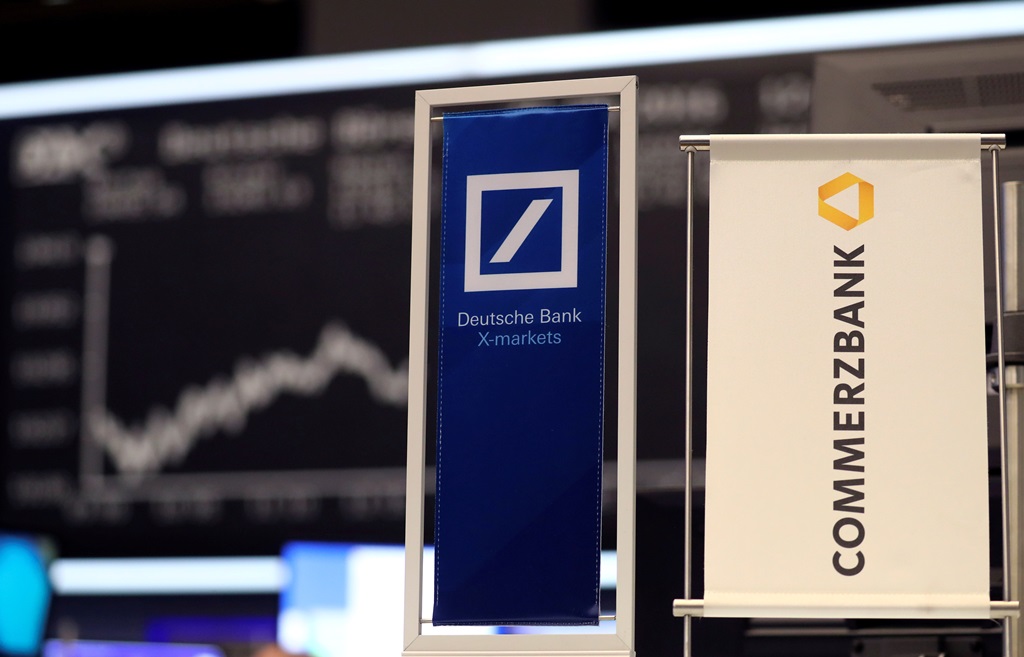The Fiasco of Political Banking: Deutsche Bank and Commerzbank Abandon their Merger Plans

Merger negotiations between the boards of Deutsche Bank and Commerzbank began in March 2019 but were unsuccessful. This halted the creation of a German megabank with a balance sheet amounting to €2 trillion, which would have placed it among European market leaders such as Groupe Credit Agricole, BNP Paribas and Banco Santander, as well as global megabanks from China, America’s JP Morgan & Chase, Britain’s HSBC, and the Japanese group Mitsubishi.
The failure of the talks has an important political dimension. German Finance Minister Olaf Scholz and his officials promoted the idea of establishing a large financial institution: in 2018, they held 23 meetings with representatives of both banks and their investors. “Deutsche Commerzbank” was to support the global interests of German companies undertaking foreign investments or large commercial transactions. It would also strengthen Germany’s position amid intensifying economic rivalry with the U.S. and China. Such political ambitions, however, lost out to economic arguments.
Questioned Profits
Experts dealing with financial markets were sceptical about the idea of the merger from the very beginning. Many of them thought that Deutsche Bank and Commerzbank were too weak to handle such an ambitious project. Both banks performed poorly on the stock market in 2018, and have had considerable problems with achieving stable profits. Deutsche Bank is in a particularly difficult situation, faced with numerous scandals, accusations of money laundering and underdeveloped IT infrastructure. The implementation of the recovery programme launched by CEO Christian Sewing will take a lot of time.
The potential benefits of the proposed merger were also called into doubt. Supporters of the merger believed it would help to reduce costs (including those associated with employment), promote joint investments in digitisation of services, and ultimately strengthen the market position of the resulting entity and help it to achieve a higher margin. But more vocal opponents said the merger would be an expensive, time-consuming and conflict-provoking process. In this context, it is worth recalling Deutsche Bank’s recent takeover of Postbank and the difficult, as yet unfinished, process of integration.
Among issues that would certainly have arisen had the merger been successful, conflicting perspectives on job losses take first place. The planned dismissal of up to 50,000 employees may have resulted in union protests and expensive disruptions in the functioning of both banks. There were some hidden costs, such as the necessity of recalculating the value of Italian government bonds purchased by Commerzbank, which may have represented a loss of €2.5 billion. Another obstacle to the merger was the reluctance of the Deutsche Bank board to pay Commerzbank shareholders the expected 20–30% premium for the resale of shares. Uncertainty connected with the market effects of the merger, for example, the potential outflow of customers, also hindered negotiations. German companies prefer to cooperate with at least two financial institutions, so a merger could have seen them seeking alternatives.
Systemic Problems
Opponents of the merger also pointed to the economic impact of the creation of “Deutsche Commerzbank”. There is no doubt that it would have influenced the functioning of the German financial services market, where there is fierce competition between many very differentiated banks, including small public and cooperative institutions. This dispersed environment would have had to adjust to a large player capable of dominating the market, thus imposing higher prices on customers. An additional threat would have been the weakening of public banks, which in German capitalism play an important role in economic policy at the Länder and municipality level.
Achim Wambach, head of Germany’s Monopoly Committee, was among those who underlined the great systemic risk of creating a financial entity that was “too big to fail”. The authorities of the new corporation may have been inclined to take greater risks in business decisions, knowing that they would probably receive public support in the event of difficulties. The problem of potential costs for taxpayers is not abstract: in 2008, the bankrupt Commerzbank received €18 billion in aid, in return for which the state obtained 15% of the bank’s shares. If this 15% had been transferred to a new entity following a merger, the German government could have attempted to bypass restrictive EU directives on fiscal assistance (bailout), referring to its own status as a shareholder in the megabank.
Political Consequences
The fiasco of the failed attempt to merge Deutsche Bank and Commerzbank weakens Scholz. It also hits his party, the SPD, which seeks to regain voter support by demonstrating its competences in the economic sphere. Other losers of the failed negotiations include supporters of “national champions” and the industrial policy pushed by economy minister Peter Altmeier. This policy sees big companies and a more active state as Germany’s response to the challenges of global competition. Against this background, Chancellor Angela Merkel makes a better impression. From the very beginning of talks, she distanced herself from the potential merger.
The failed merger attempt could have significant consequences for the EU financial market and related integration projects. It leaves more room for “European” consolidation, the formation of large financial institutions at the continental level. The end of the “Deutsche Commerzbank” idea will certainly intensify speculations about potential new buyers, especially for Commerzbank, with competitors from France (PNB Paribas), Italy (Unicredit), Spain (Santander) and other countries as potentially interested parties. The Dutch bank ING, among the European leaders in banking digitization, is touted as the favoured buyer should such a sale go ahead. ING has promised to transfer part of the central operations to Frankfurt and to minimize job losses. The sale of one of the big German banks would be of great political importance. First, it would be conducive to accelerating the completion of the banking union. The emergence of large-scale cross-border institutions enforces joint bank rescue mechanisms, including deposit insurance (EDIS) and fiscal support for institutions in trouble. Secondly, the fact that Germany would not have a “national champion” in the financial sphere would reduce the fears of many EU Member States about German domination in the bloc. This could facilitate progress in reforming the Eurozone.
The failure of the merger of the German banks also has consequences for Poland. It silences—at least for now—speculation about the fate of mBank, a daughter company of Commerzbank and one of the largest players on the Polish market. The merger with Deutsche Bank could have meant the sale of Polish assets. In such a scenario, the probable buyer would have been a Polish bank with public capital (private banks are too small). This would have supported the tendency towards the repolonisation of the banking sector in Poland.
A focus on pan-European banking mergers (rather than the emergence of national megabanks) should result in the integration of political control over huge financial institutions, which should also be considered beneficial from the point of view of Poland’s interests—as well as those of other smaller EU Member States. The dilemma, however, is the acceleration of efforts towards the completion of the banking union, which would be favoured by cross-border mergers. The Polish government has not yet decided to join this structure finding it not attractive enough. However, apart from the existing supervision and the bank resolution mechanism, the creation of European deposit insurance and the completion of the system of financial support in the event of a bank crisis may change the profit and loss account for Poland.


